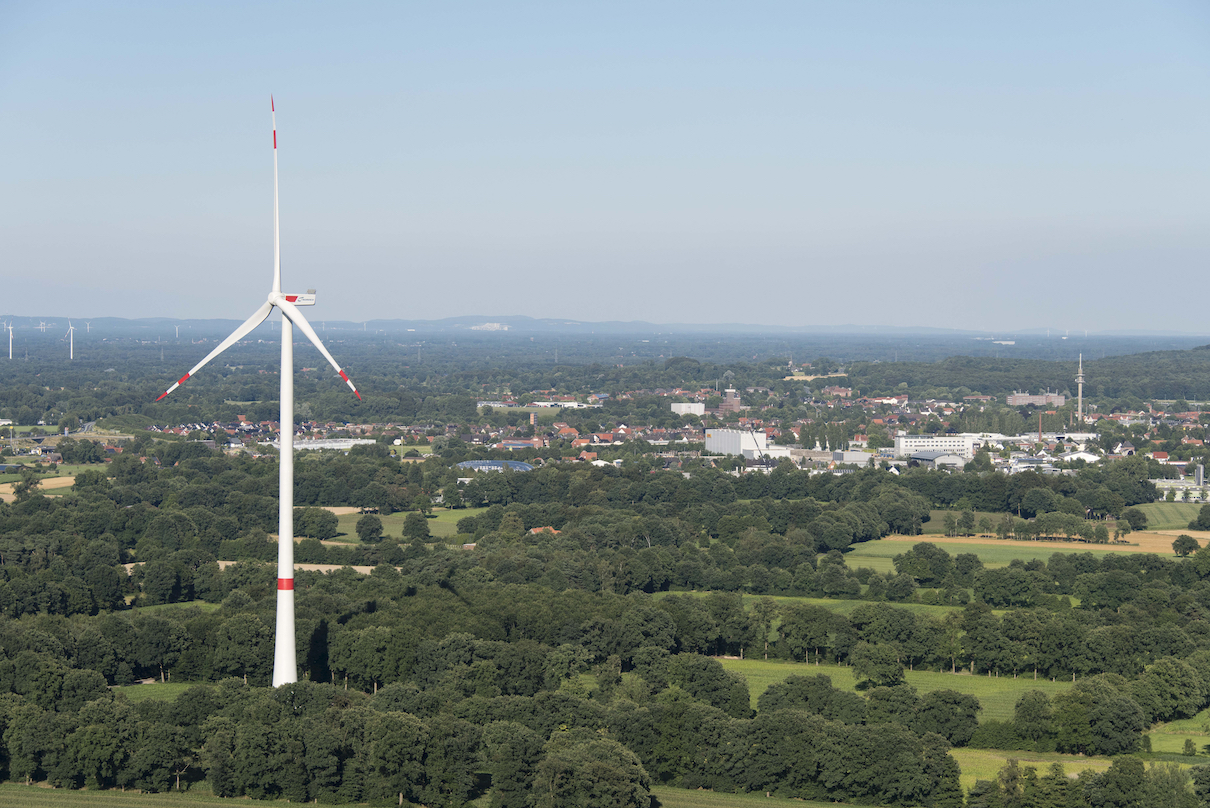Germany awarded contracts to more than 1GW of onshore wind farms in the country’s latest tender, which was oversubscribed for the first time since December 2020.
The country’s energy regulator, the Bundesnetzagentur (BNetzA), received 210 bids with a combined capacity of 1,824MW in the latest onshore wind-only tender — well above the 1,492MW on offer.
It awarded contracts to 166 projects totalling 1,494MW.
This was more than the 1,110MW awarded in the most recent wind-only tender, which had been the first time more than 1GW was awarded since November 2017.
Successful bid prices ranged between €52/MWh and €59.20/MWh, with a volume-weighted average of €57.90/MWh. This average price was comfortably below the €60/MWh cap on bids in this round, and down from the €59.10/MWh average in the last tender.
BayWa, Denker & Wulf, EnBW, Energiequelle, Enertrag, Engie, EWE, Juwi, PNE and Wpd were among the successful developers. Many community wind farms also received power contracts.
The most capacity was awarded in the northern state of Schleswig-Holstein (43 projects with a combined capacity of 401MW), followed by North Rhine-Westphalia (51 projects, 315MW) and Lower Saxony (19 projects, 265MW).
Reaction
German wind energy association BWE noted that Germany is on course to contract about 4.2GW of wind power capacity in 2021 — short of the 4.5GW annual expansion it believes Germany needs to meet its target of sourcing 65% of its energy from renewable sources by 2030.
BWE Hermann Albers said: “There is an urgent need for a faster and more consistent expansion of wind energy so that the demand for green electricity can be met and Germany can achieve its climate goals.
“Once again, expansion is lagging behind, especially in the south. There is a lack of space and permits here.”
Ahead of the German federal election in September, the BWE and WindEurope called for the next government to address project permitting and repowering challenges. “We are counting on the new federal government to take them up,” Albers added.
Olaf Scholz’s centre-left SPD received the most votes in last month’s election, and is currently in talks to form a coalition with the greens and neoliberal FDP.

.png)



.png)









